Saving energy is an important goal for many homeowners and businesses, not only to reduce their electricity bills but also to minimize their impact on the environment. Energy savings opportunities offer a range of measures that can help achieve these goals, from simple behavioral changes to more complex upgrades to a building’s infrastructure.
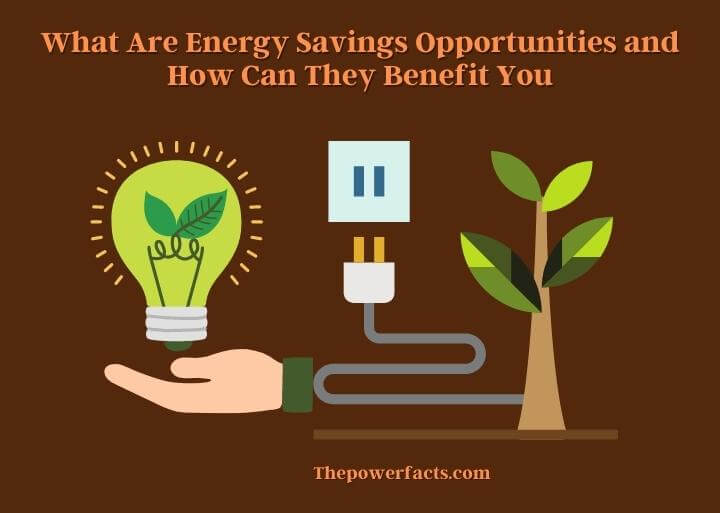
What is an Energy Audit?
An energy audit is an assessment of your home or business’s energy usage. During an energy audit, a professional evaluate your property’s energy consumption and identifies areas where energy is being wasted. This may include checking for air leaks, assessing the efficiency of appliances and HVAC systems, and analyzing your utility bills.
The auditor then provides recommendations for ways to improve energy efficiency, such as upgrading insulation, sealing air leaks, and replacing old appliances with energy-efficient models. By identifying areas where energy is being wasted and suggesting ways to improve efficiency, an energy audit can help you save money on your energy bills and reduce your environmental impact.
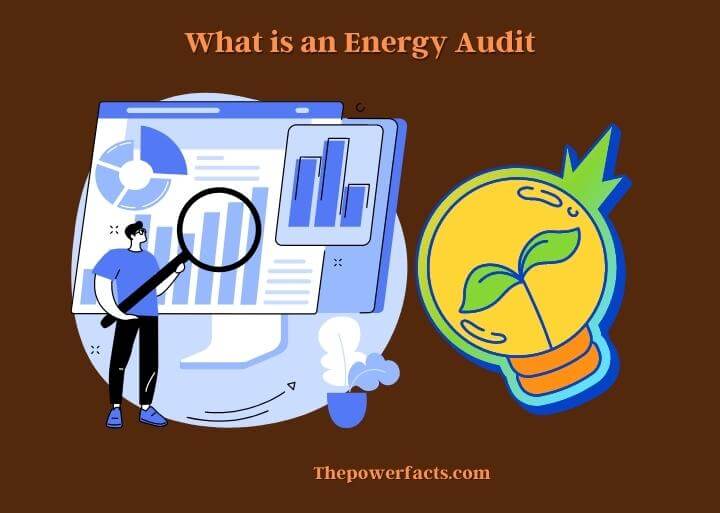
What are Energy Savings Opportunities?
Energy savings opportunities are measures that can be taken to reduce energy consumption and costs in a home or business. These opportunities can range from simple behavioral changes to more complex upgrades to the building’s infrastructure. Some common examples of energy savings opportunities include:
1. Energy Audits
An energy audit is a comprehensive assessment of a building’s energy usage and efficiency. It identifies areas where energy is being wasted and provides recommendations for improvements. A professional energy auditor can conduct an audit and provide a detailed report of findings and recommendations.
2. LED Lighting
Replacing traditional incandescent light bulbs with LED bulbs is an easy and cost-effective way to save energy. LED bulbs use up to 80% less energy and last up to 25 times longer than incandescent bulbs.
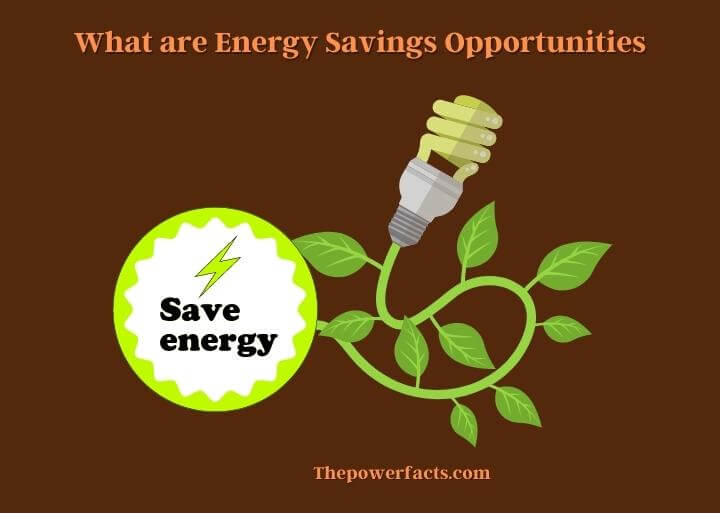
3. Programmable Thermostats
Installing a programmable thermostat can help reduce energy usage by automatically adjusting the temperature of your home based on your schedule. This means you can save energy when you’re not home or sleeping and still have a comfortable temperature when you need it.
4. Energy-Efficient Appliances
Energy-efficient appliances are designed to use less energy than traditional appliances while still providing the same level of performance. Look for appliances with the ENERGY STAR label, which means they meet strict energy efficiency guidelines set by the U.S. Environmental Protection Agency (EPA).
5. Insulation and Air Sealing
Insulating and air sealing your home can help reduce energy usage by preventing heat loss and air leakage. This can be done by adding insulation to walls, floors, and attics and sealing air leaks around windows, doors, and other openings.
Benefits of Energy Savings Opportunities
Energy savings opportunities not only reduce energy usage and costs, but they also have a positive impact on the environment.
Cost Savings
By reducing your energy usage, you can save money on your monthly utility bills. Over time, these savings can add up to significant amounts of money.
Improved Comfort
Energy savings opportunities can also improve the comfort of your home. By making upgrades to your insulation, air sealing, and HVAC system, you can create a more comfortable and consistent indoor temperature.
Environmental Benefits
Reducing energy usage also means reducing greenhouse gas emissions. By taking steps to save energy, you’re doing your part to combat climate change and protect the environment for future generations.
Increased Home Value
Energy-efficient homes are becoming increasingly popular among homebuyers. By making energy-efficient upgrades to your home, you can increase its value and appeal to potential buyers.
How to Identify Energy Savings Opportunities?
Identifying energy savings opportunities is the first step towards reducing energy consumption and saving money.
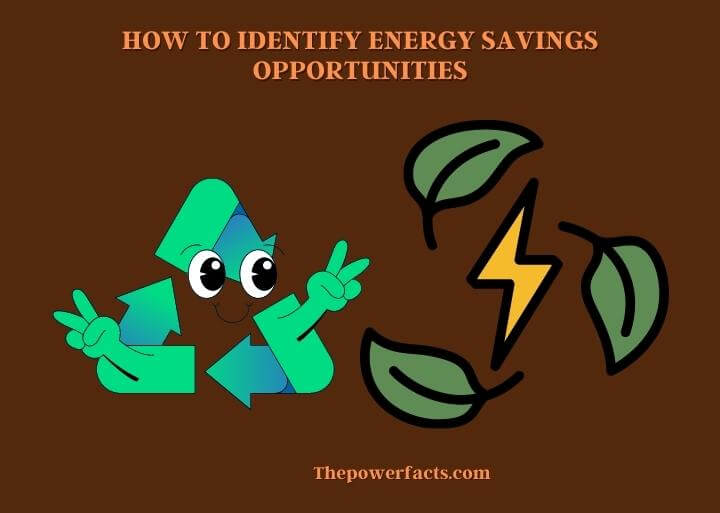
- An energy audit is an assessment of your home or business’s energy usage. It can identify areas where energy is being wasted and suggest ways to improve efficiency.
- Your energy bills can provide a lot of information about your energy usage. Analyzing your bills can help you identify patterns and areas where energy is being wasted.
- Air leaks can significantly increase your energy usage, especially in the case of heating and cooling systems. Check for air leaks in doors, windows, and other areas where air can escape.
- Energy-efficient appliances use less energy and can help reduce your energy bills. Look for appliances with the ENERGY STAR label.
- LED lights are more energy-efficient than traditional incandescent bulbs and last longer, making them a cost-effective option.
- Programmable thermostats can help you reduce energy usage by automatically adjusting the temperature when you are not home or asleep.
- Proper insulation can help keep your home or business comfortable and reduce the need for heating and cooling.
How Much Can I Save by Implementing Energy Savings Opportunities?
The amount of money you can save by implementing energy savings opportunities depends on your current energy usage and the changes you make. It is not uncommon for homeowners and businesses to see significant savings on their energy bills by making energy-efficient upgrades.
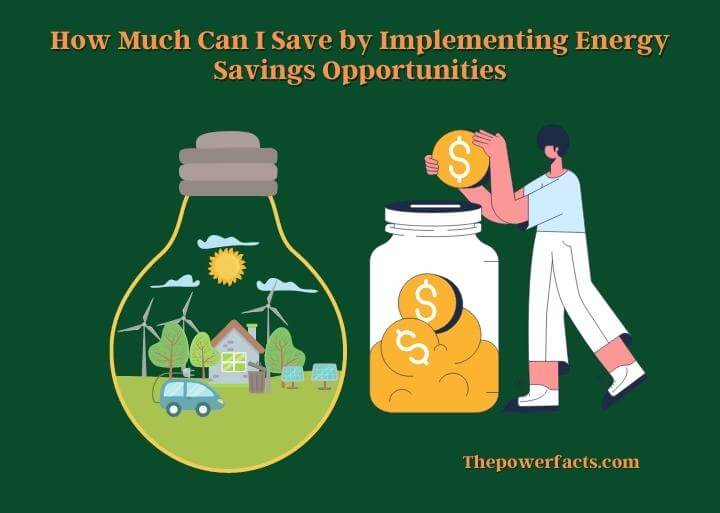
According to the U.S. Department of Energy, homeowners can save an average of 5-30% on their energy bills by making energy-efficient upgrades, while businesses can save up to 30%.
The savings can add up to hundreds or even thousands of dollars each year, depending on the size of your home or business and the changes you make. Many energy-efficient upgrades may qualify for rebates or incentives from your utility company or local government, further increasing your potential savings.
The Bottom Line
Identifying energy savings opportunities can have a significant impact on your energy bills, comfort level, and environmental footprint. If you make simple changes, such as upgrading appliances, installing insulation, or sealing air leaks, you can save money on your energy bills and reduce your impact on the environment.
An energy audit can be a valuable tool in identifying areas where energy is being wasted and suggesting ways to improve efficiency. Many energy-efficient upgrades may qualify for rebates or incentives, further increasing your potential savings.
By taking steps to improve energy efficiency, you can not only save money but also contribute to a cleaner, more sustainable future. So, consider taking an energy audit and implementing the suggested energy-saving opportunities to start reaping the benefits today!